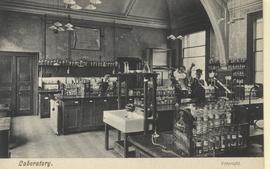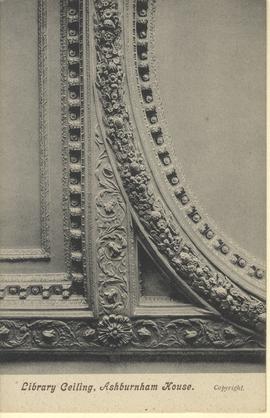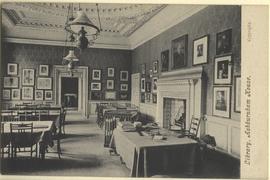- GB 2014 WS-02-ORA-010
- Item
- 2013-07-11
[00:24] Background. Father was barrister, served in First World War and keen pilot; died flying in 1930. Two older sisters, went to Francis Holland. Brother to Winchester. Corsellis to Westminster. [04:14] Prep School at St. Clare’s, Walmar, Kent. About 40 boys. Taught Latin and Greek. Encouraged to try for Westminster. Timid and nervous. [05:48] Put in for the Challenge a year early and failed, tried again and failed and admitted as Town Boy as a Homeboarder. [07:01] Head boy of St. Clare’s. Reading lesson in Chapel – good training in public speaking. Disciplinary authorities and responsibilities. [08:13] Went from ‘big fish’ at Prep School to ‘lowest of the low’ at Public School. [08:24] Joined Westminster September 1936. [08:38] Two uncles had been to Westminster. In awe of the school. [09:35] Friendly school. Proud of Westminster School. [10:02] Started at Westminster living at the northern end of Baker Street. Walk to school in top hat and tail coat through the parks. Enjoyed the attention. [11:12] Family moved to Brighton. Commuted for a term on a daily basis. [11:44] Didn’t enjoy football or cricket matches at Prep School. Became a scorer – went with first XI to away matches, got to enjoy the food, ‘felt nice and important’. [12:38] Westminster offered fencing instead. ‘Tiny claim to fame at Westminster’ with fencing. Clerihew ‘Corsellis / rhymes with trellis / Hence / Fence’. [15:30] Fencing in Little Dean’s Yard when weather was nice. Fenced over the graves of the monks in the cloisters. Old Gym when the weather was bad. Armory garden, Ashburnham Garden? [17:14] Distinguished French fencing instructor. No electric scoring. Didn’t have to do football, cricket or water for fencing. [18:40] Left-handed. Was made to write right-handed. Disorientates right-handed fencers used to fighting right-fencers. Successful. Made school team. Public Schools Championship – first in foils, second in épée. [20:30] Beginning of first term, new intake congregate in Yard and addressed by master in charge of Corps. Gave patriotic speech. Alternatives – Scouts or gym. [22:15] Influence of brother. ‘Mildly disrespectful of authority’, advised not to do Corps. Opted for Gym. Learning to vault and parallel bars. [23:40] Conscious of war. Pacifist tendencies. Aunt ‘militant pacifist’, role model. [25:25] Westminster ‘evangelical, in the wider sense’. John Christie, Head Master, as ‘striking preacher’. Classics Master as pacifist, left school when the war started, ‘presence not very desirable’. Not characteristic of a normally tolerant Westminster. [27:45] Three contemporaries from College joined Friend’s Ambulance Unit (FAU). William Barnes; nickname ‘Bishop’, strong personality but liked and respected, became head boy. [29:57] Norman John Peppin Brown; became Professor of Philosophy in Canada; Catholic. [31:00] Donald Swann; musical, same election as Corsellis, went to Oxford. [31:38] Left Westminster, entered into articles with a lawyer in Oxford. Apprentice, didn’t need a degree. ‘Paid for the privilege of being a trainee in a lawyer’s firm’. One or two years of part time lectures at university. [33:24] Would meet up with Swann while both in Oxford, in British Restaurant for ‘awful meals, quite cheaply’, or two own sandwiches. Got to know Swann’s father, grew up in Russia until the revolution. [36:58] Advise Swann of FAU. Both ended in the same camp in the Cadbury Estate in Birmingham, six weeks of training. Converted stables for recruits, help to toughen up. [38:52] Both sent to ‘training hospital’ Guy’s Hospital in Orpington. Had been Canadian military hospital in First World War, ‘geriatrics hospital’ between wars. Converted to sector hospital to move patients out of London. Swann, Bill Mann (ended up music critic of the Times), Douglas Harvey. [41:08] Hospital porters, used as ward orderlies.



